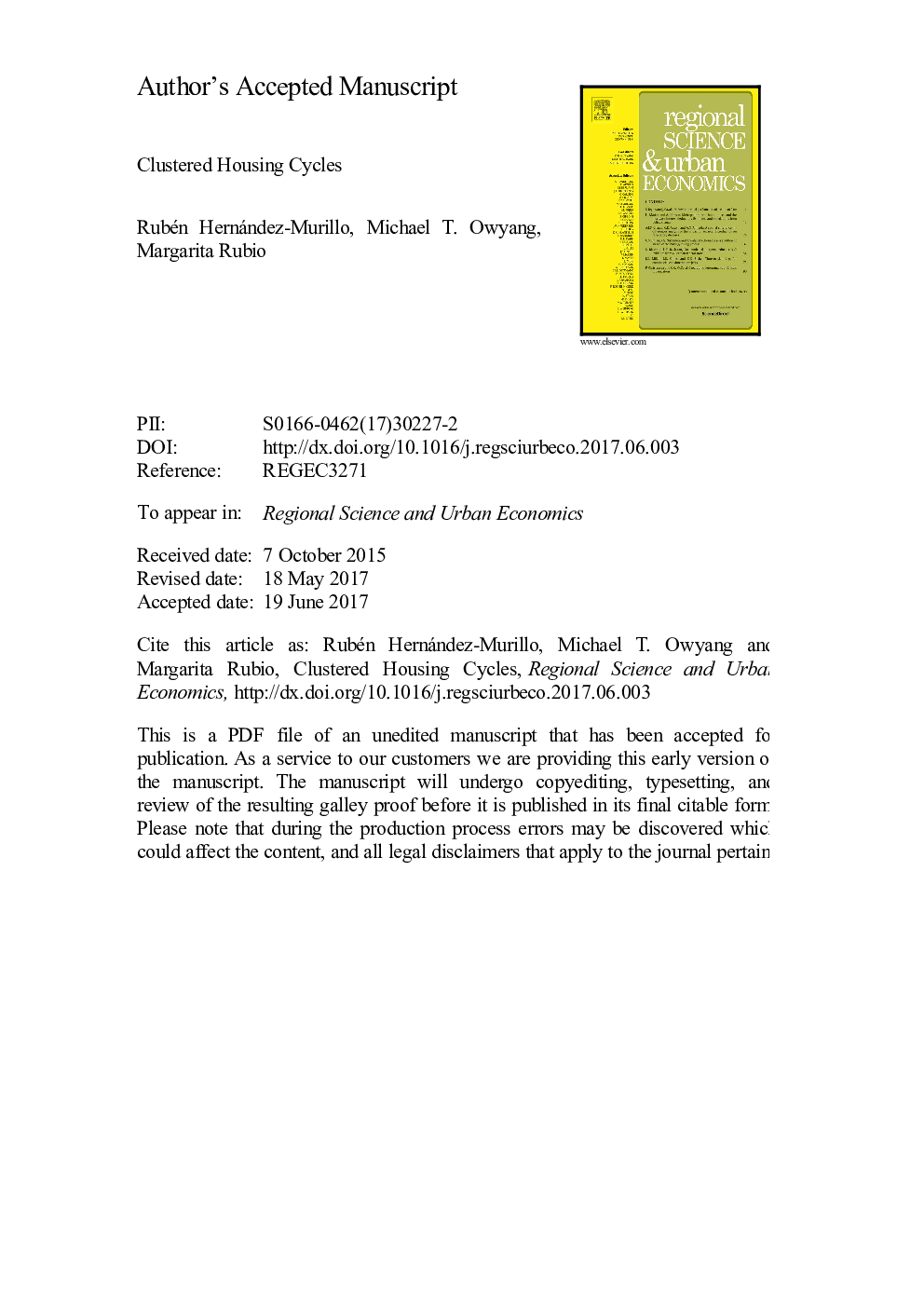| Article ID | Journal | Published Year | Pages | File Type |
|---|---|---|---|---|
| 5103709 | Regional Science and Urban Economics | 2017 | 30 Pages |
Abstract
Using a panel of U.S. city-level building permits data, we estimate a Markov-switching model of housing cycles that allows cities to systematically deviate from the national housing cycle. These deviations occur for clusters of cities that experience simultaneous housing contractions. We find that cities do not form housing regions in the traditional geographic sense. Instead, similarities in factors affecting the demand for housing (such as population growth or availability of credit) appear to be more important determinants of cyclical co-movements than similarities in factors affecting the supply for land (such as the availability of developable land or the elasticity of land supply).
Related Topics
Social Sciences and Humanities
Economics, Econometrics and Finance
Economics and Econometrics
Authors
Rubén Hernández-Murillo, Michael T. Owyang, Margarita Rubio,
